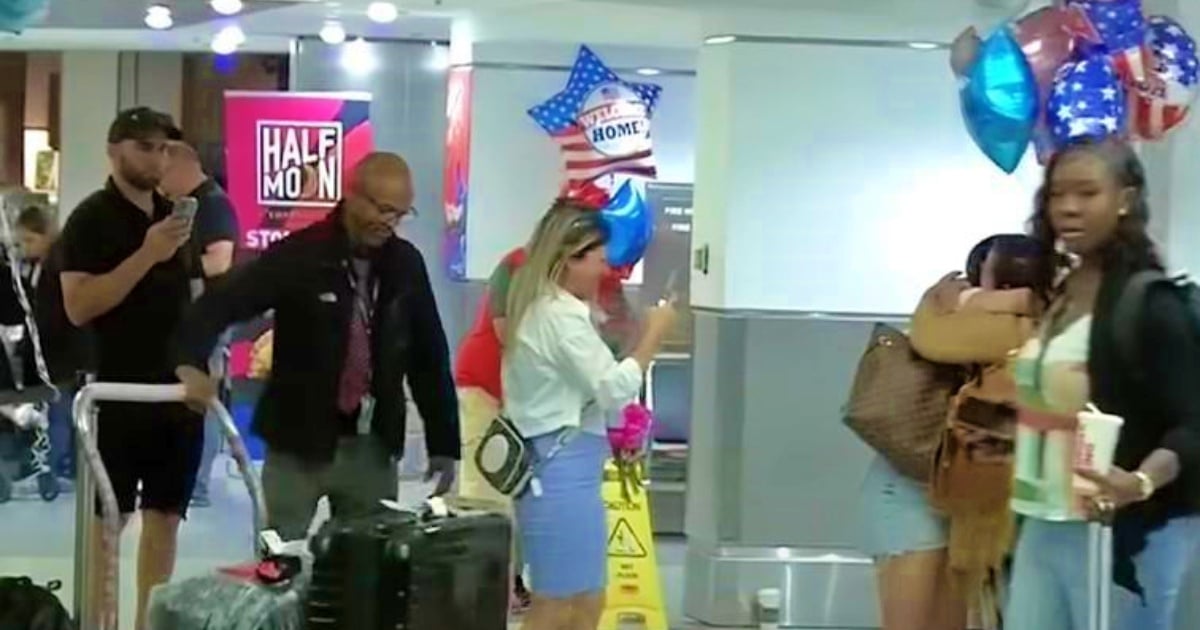The issuance of travel authorizations for beneficiaries of the humanitarian parole program, which was suspended on August 2 following an internal report revealing significant levels of fraud, could be reactivated very soon, NBC reported this Wednesday.
"It could be revived by the Biden administration as early as this week, although thousands of suspicious applications still need review," two sources told NBC News. The source added that the administration is eager to resume the program as soon as possible because authorities are aware that the parole program was deterring migrants from Cuba, Haiti, Nicaragua, and Venezuela from crossing the border illegally and fear a rebound in illegal border crossings.
Sources familiar with the review of nearly 101,000 sponsor applications said that employees of the USCIS Fraud Detection and National Security Directorate had reviewed more than two-thirds of the suspicious applications as of last week. About 30,000 remain to be reviewed, but the source added that they may not be finished before the program is reinstated, which sources say is imminent.
So far, six sponsorship applications have been handed over to the headquarters of Homeland Security Investigations, a division of Immigration and Customs Enforcement (ICE) tasked with investigating potential criminal immigration fraud under an agreement between USCIS and ICE, sources familiar with the review said.
A U.S. government official told the American network that when the program resumes, sponsor applications will be manually reviewed in small batches with enhanced screening procedures. From now on, any sponsor suspected of involvement in fraud will be referred for a deeper investigation.
More than 2.6 million migrants from Cuba, Haiti, Nicaragua, and Venezuela have applied to enter the U.S. through the program. As of July, more than 530,000 immigrants had been authorized to travel to the United States under the program, according to Department of Homeland Security (DHS) data. The report does not clarify how many of those approved applicants were brought to the United States with the help of the 3,200 "serial sponsors."
Nor is it clear whether the 101,000 applications marked for review were from people who have already entered the United States, from those whose applications were rejected, or a combination of both.
Temporary Suspension of Travel Permits for Humanitarian Parole Beneficiaries
On August 2, the U.S. government temporarily froze travel permits for beneficiaries of the humanitarian parole program following an internal report revealing significant levels of fraud, Fox News reported, citing a spokesperson from the Department of Homeland Security (DHS).
The government source indicated that "out of an abundance of caution," they have suspended the issuance of advance travel authorizations for the program since mid-July while they proceed to thoroughly review sponsor applications, which is where the focus of fraud lies.
The CBP stopped issuing travel authorizations to Venezuelans on July 6 and to Cubans, Nicaraguans, and Haitians since July 18. Authorities indicated they would resume processing as soon as possible "with the appropriate safeguards" but did not provide a probable date for the return of travel permits.
As of the end of June, 106,757 Cubans had benefited from the program, and about 104,130 had already traveled to the United States, according to official CBP figures.
Key Points about the Humanitarian Parole Program's Status
Here are some frequently asked questions and answers regarding the current status and future of the humanitarian parole program:
Why was the humanitarian parole program suspended?
The program was suspended due to an internal report revealing significant levels of fraud in the sponsor applications.
When is the program expected to resume?
Sources suggest that the Biden administration could resume the program as early as this week.
How many applications are still under review?
About 30,000 applications marked as suspicious are still under review.
